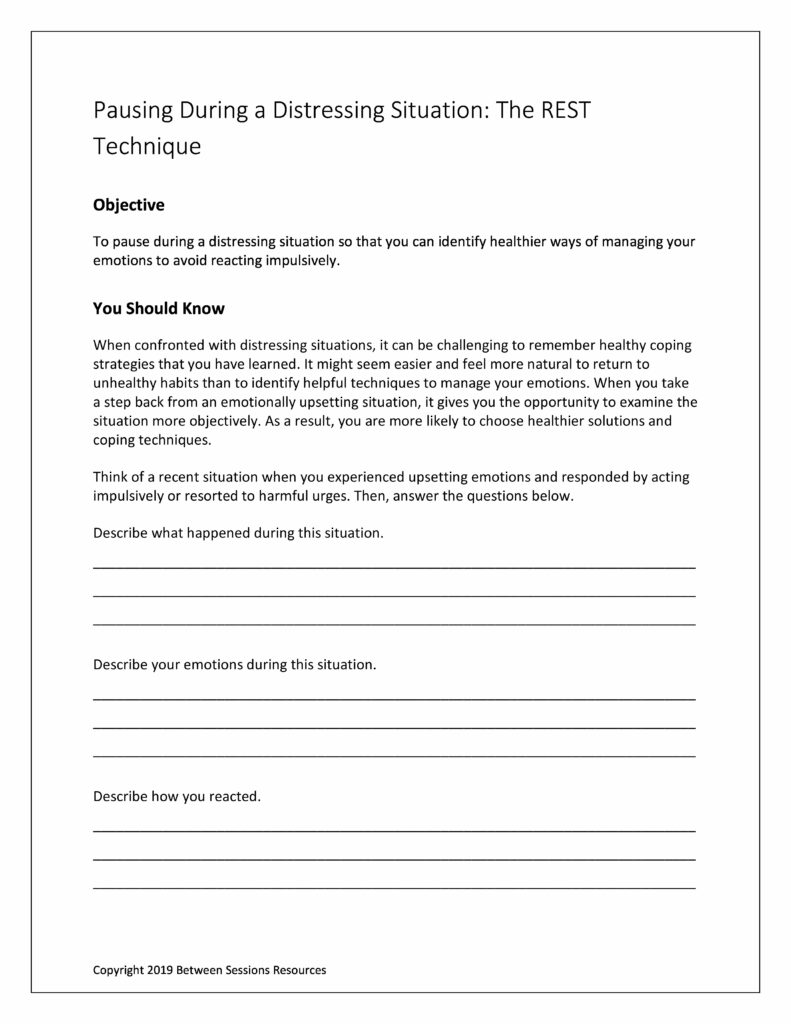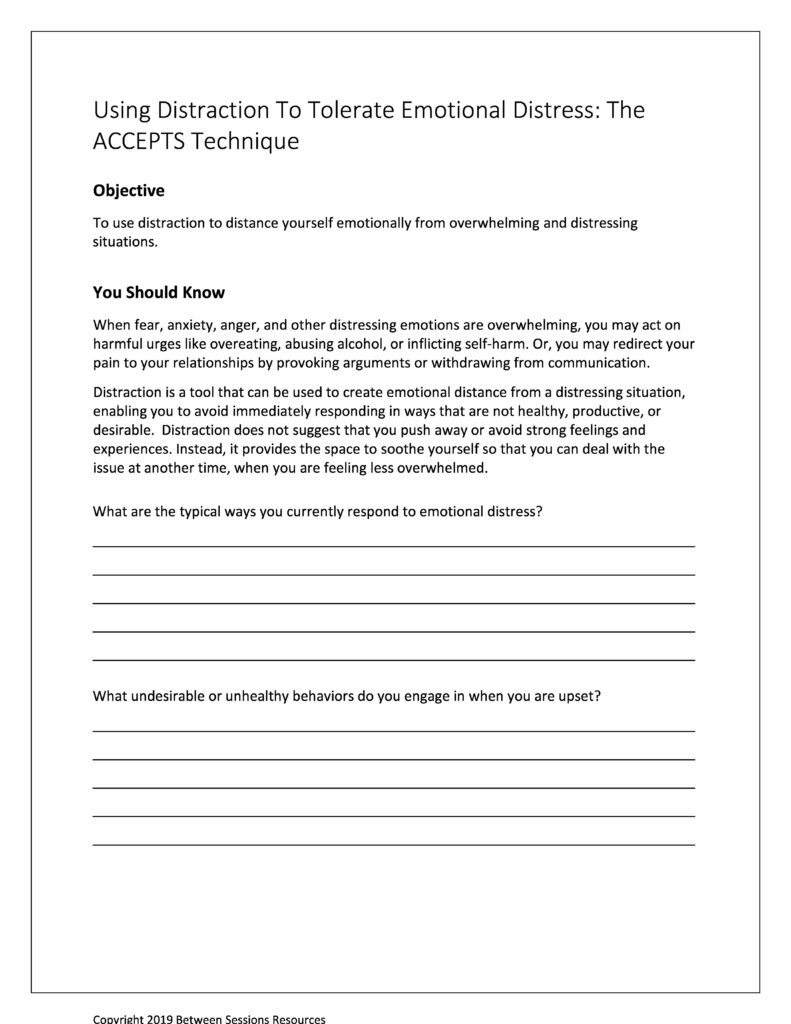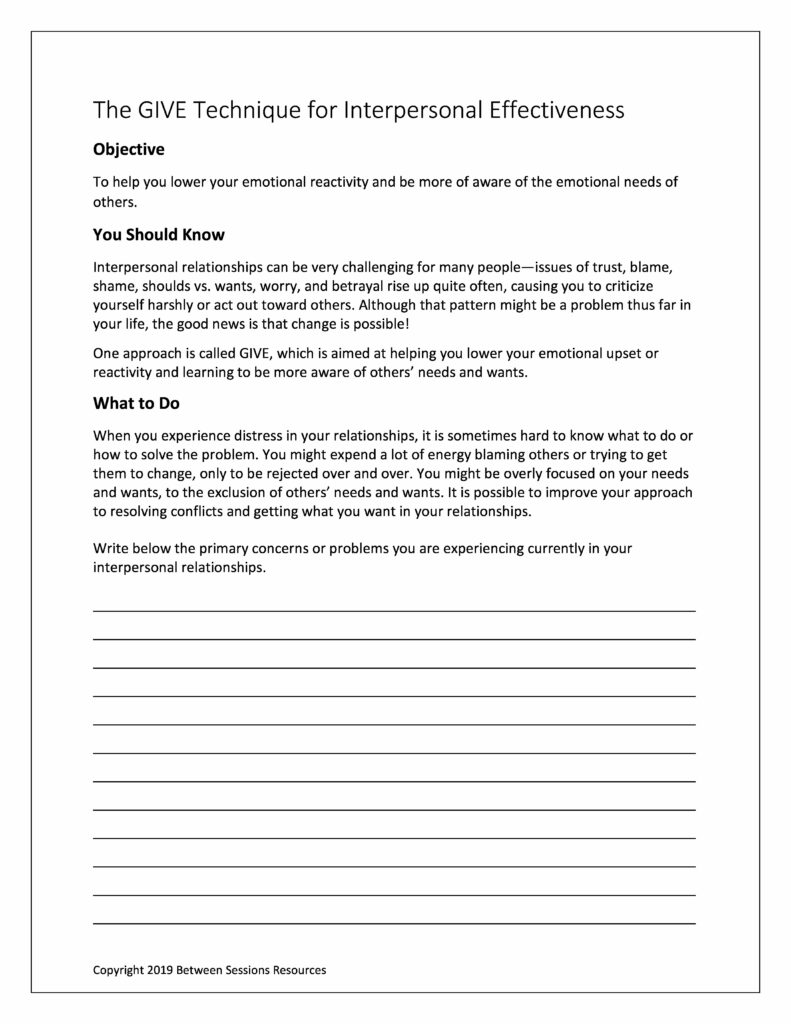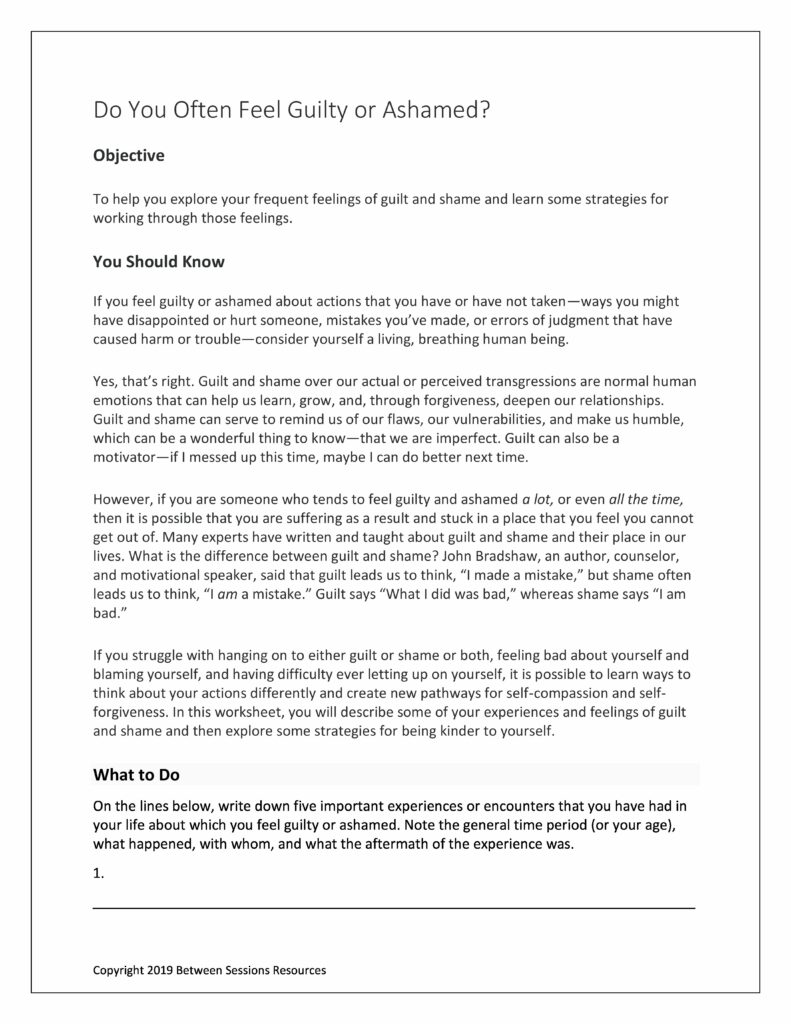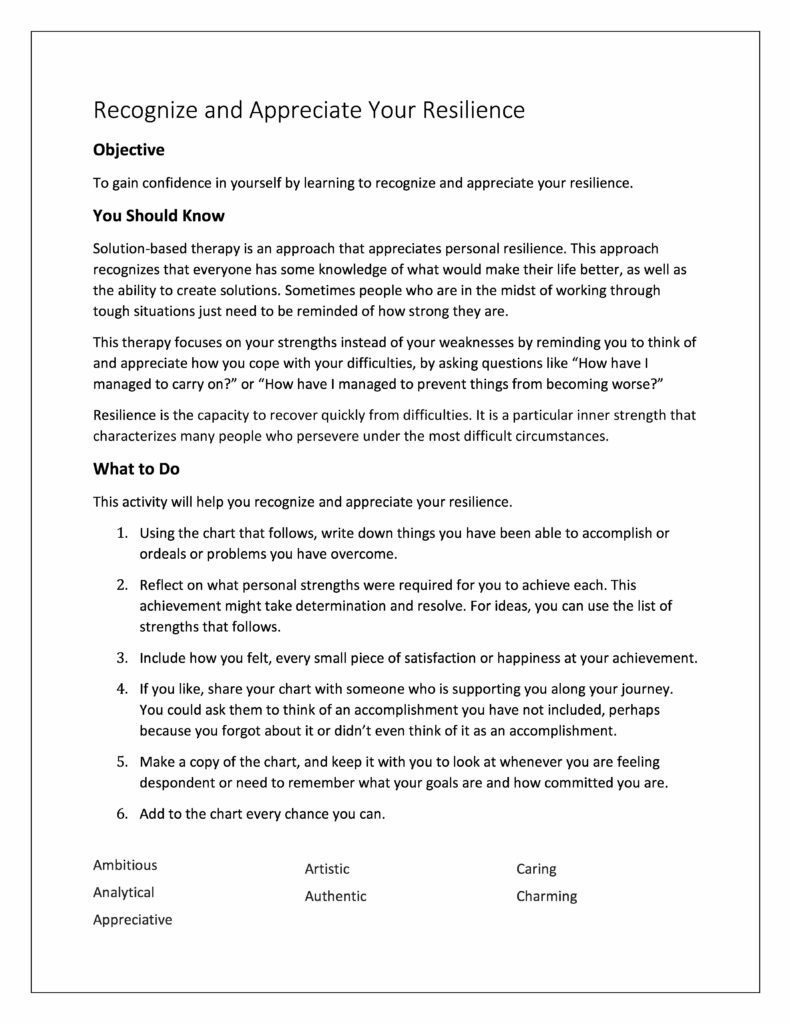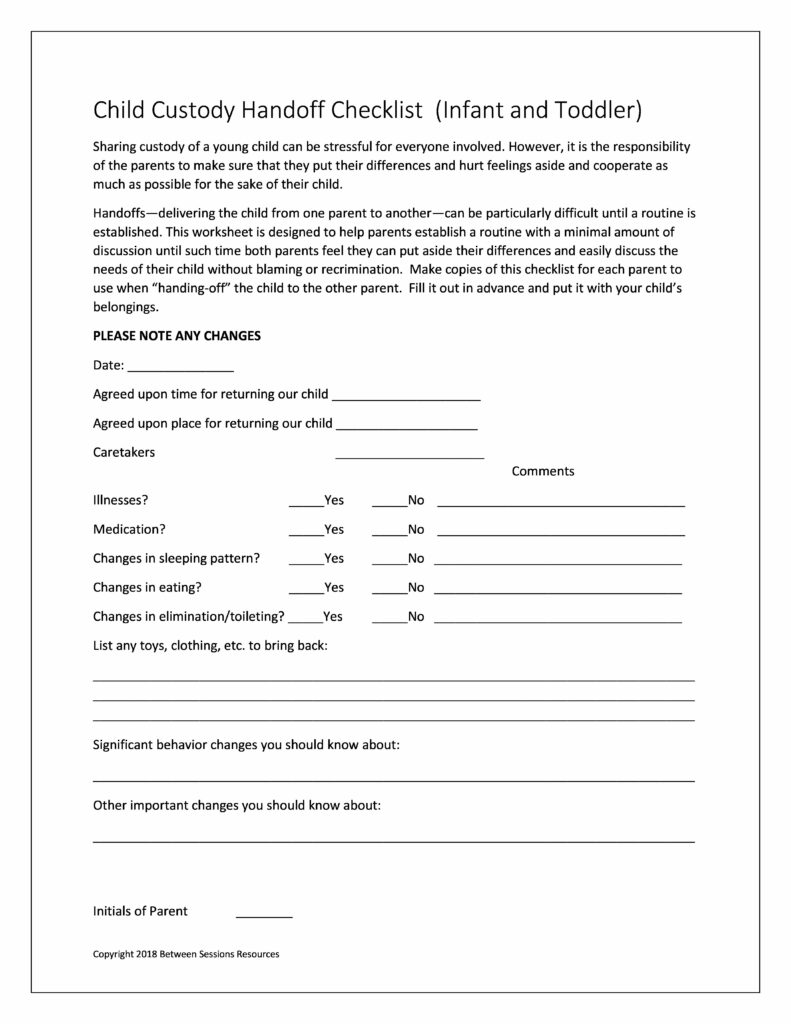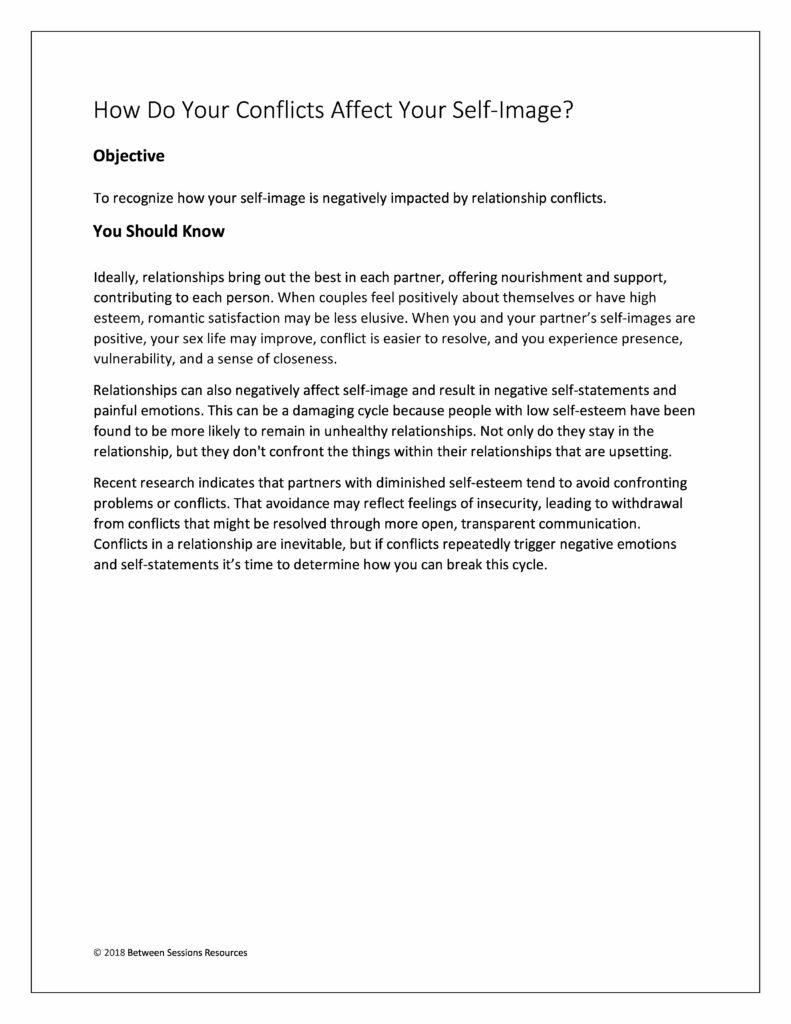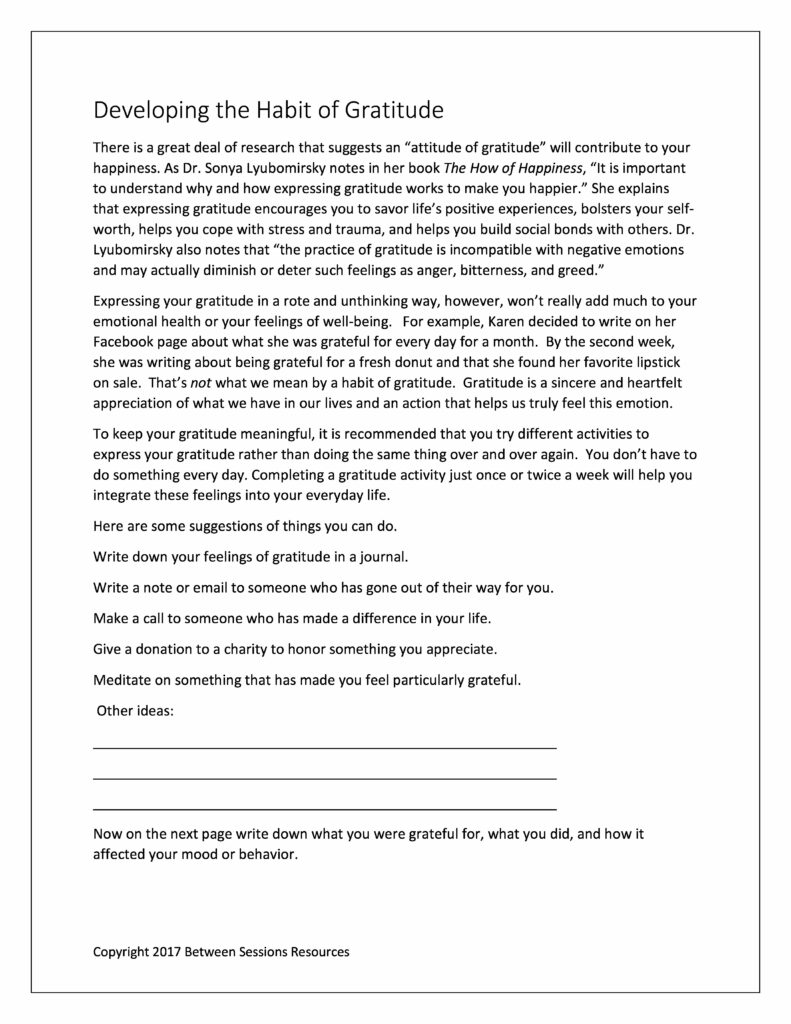This worksheet helps people deal with overwhelming emotions by using the REST technique (relax, evaluate, set an intention, take action). It is designed to help people regain control over their emotions. (DBT, emotional regulation, 1119)
This worksheet can be used by people to help cope with overwhelming emotions. It describes the ACCEPTS method, a DBT technique, to help people experiment with various ways to distract themselves from upsetting and overwhelming emotions. (DBT, distress tolerance, emotions, 1119)
This worksheet is designed to help clients lower their emotional reactivity and be more of aware of the emotional needs of others. (DBT, 0424)
This worksheet is designed to help people who are overwhelmed with guilt and shame. It helps people examine the causes of these feelings and what they can do to get closure. It also teaches the concept of self-compassion. (depression, PTSD, bipolar disorder, guilt, shame, self-compassion, 0319)
This worksheet is designed to help people understand the concept of resilience and focus on the character traits that make them more resilient. (Solution-Focused, positive psychology, self-esteem, 1118)
This worksheet is designed to help couples identify harmful or verbally abusive patterns in their communication partner and learn healthier ways of approaching conflicts. (couples communication, marital therapy, couples counseling, conflict management, 1018)
Handoffs—delivering the child from one parent to another—can be particularly difficult until a routine is established. This worksheet is designed to help parents establish a routine with a minimal amount of discussion until such time both parents feel they can put aside their differences and easily discuss the needs of their child without blame or recrimination.
This worksheet is designed to assist people in recognizing when their self-image is negatively impacted by the conflicts in their relationship. People are asked to identify the negative self-statements they make after a conflict and the negative emotions these statements evoke. (relationships, couples therapy, marriage, self-esteem, 0518)
This worksheet is designed to help couples find more productive ways to resolve conflict.
This worksheet is intended to help people see the many benefits of developing an attitude of gratitude. It gives specific instructions on helpful activities to maximize the benefits of this practice. (depression, anxiety, prevention, gratitude, wellness, appreciation, 0717)

